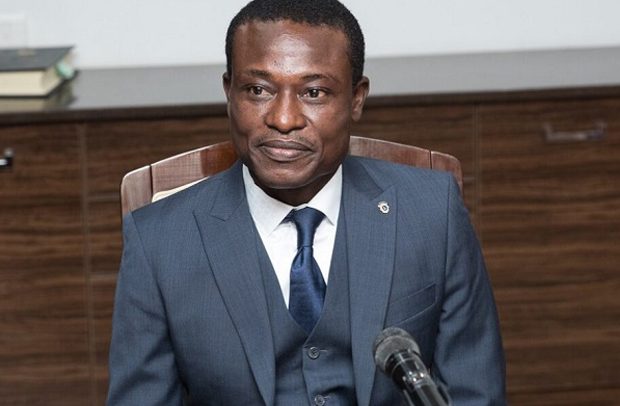The logical implication is that, before starting an investigation into any complaint, the OSP must be satisfied that the facts, on the face of it, show a reasonable suspicion of any of the 11 specified offences having been committed. Since such a determination is an administrative decision and is contingent on statutory benchmarks being met, the decision itself becomes subject to Judicial Review.
After this determination, the Special Prosecutor is then required to either file the complaint, with no action being taken, or conduct either a preliminary inquiry or investigation, or authorize a full investigation. Facts and circumstances should ‘reasonably’ indicate that an investigation may be conducted to prevent, solve, or prosecute any of the 11 specified offences.
If a full investigation is authorized, the SP is required to establish an investigation panel, tasked with building a complete investigation docket. Upon completion of the panel’s work, the law mandates that they submit a report to the SP, based on which the SP can decide whether to accept the recommendation, reject it or modify it. The SP can only decide to prosecute, following the completion of the investigative panel’s work and upon consideration of all the facts and evidence gathered from them.
The drafters of the Act were mindful of the potential abuse of power and therefore imposed benchmarks at every stage, from complaint to prosecution, making actions taken at each stage of the process subject to Judicial Review.
Based on the above facts and risks, a rational SP would have been expected to begin his Regulation 5 analysis by answering the fundamental question of jurisdiction, since the OSP can only prosecute the offences specified in its Act.
Common sense alone would therefore have required the SP to answer, at the start of its investigations, whether the facts prima facie laid a reasonable suspicion of any of the 11 specified offences being committed. That analysis, properly done, would have revealed to any reasonable investigator, in the place of Kissi Adjabeng, that the facts do not engage any of the 11 offences under the OSP Act and would then have shown the OSP lacks jurisdiction to investigate the matter.
The SP’s failure to understand this at the start of his investigation was occasioned by a failure to properly weigh and adhere to its obligations under Regulation 5. It was not merely incompetent but route irrational, as no rational or reasonable Investigator/Prosecutor would have gone ahead with a full investigation after a proper Regulation 5 analysis of the complaint against the Minister.
To downplay his route irrationality, the SP engaged in further irrationality by propping up its report with a totally irrelevant discussion on the merits, otherwise of sting operations which carried more than half of the entire investigative report.
That discussion had no relevance to the Report because, the OSP Act clearly mandates him to pursue investigations based on journalistic work by investigative journalists. This needless distracting stunt therefore only exposed the SP’s own ignorance of his Enabling Law and further revealed a state of mind that rendered his subsequent findings biased and improper.
It is needless to point out the current SP served as Counsel for Anas, whose work has been found by a Court of competent jurisdiction to be criminal. The SP therefore, in his route irrationality, sought to use the opportunity to whitewash Anas while unethically taking shots at a valid judgment of the Court.
It was therefore not surprising that the conclusion reached by the SP was also terminus irrational. The conclusion reached by the SP implicates Adu Boahen, in what the SP describes as ‘influence peddling’. However, the allegation made against Charles Adu Boahen by Tiger Eye PI was that he had been recorded engaging in the commission of a corruption and corruption-related offenses.
That can be found at paragraph 3.3 of its report where the SP restated the initial allegation against Mr. Charles Adu Boahen, to be that he was on audio and visual recording, engaged in corruption and corruption-related offenses. The OSP Act details the 11 Offenses intended to be covered by the ‘axiom corruption and corruption-related offenses’.
The law does not include any crime known as ‘Influence Peddling’ and the SP has absolutely no mandate in law to make findings that are outside his remit. The mandate of the Special Prosecutor that had been engaged was his investigative mandate. His task was to establish conclusively whether the facts prima facie establish the commission of any of the 11 offenses known to the OSP Act.
By the clear operation of common sense, any findings outside of this would therefore have been made ultra vires and would have been made in excess of jurisdiction, rendering it terminus irrational.
Conclusion
When we critique the Office of the Special Prosecutor (OSP), we’re pointing to its frequent disregard for legal principles, its lack of understanding of its enabling law and its careless indifference to the statutory checks, designed to prevent it from becoming an unchecked force.
For those with even a modicum of foresight, the precedent being set by this SP and his clique of friends and associates, operating from our taxpayer-funded public offices, will lead to a future where the Office of the Special Prosecutor lacks credibility and is merely a puppet squad, manipulated by political actors to pursue political enemies or by Anas Amereyaw Anas, to fulfil his own desires.
It is hoped that Mr. Charles Adu Boahen, in the interest of developing our shrinking human rights frontiers, prays the Court to exercise their duty to remedy this irrationality by Kissi Adjabeng.
By Kofi Opare Hagan


